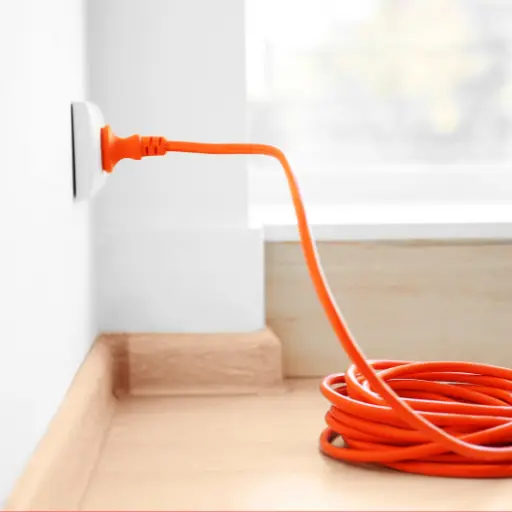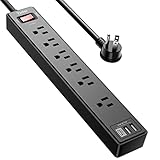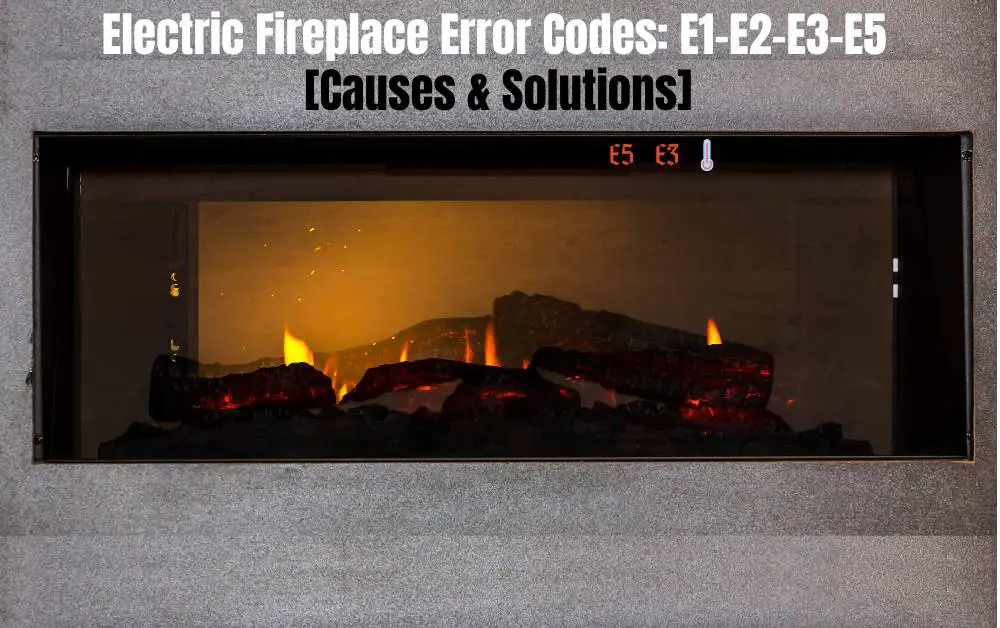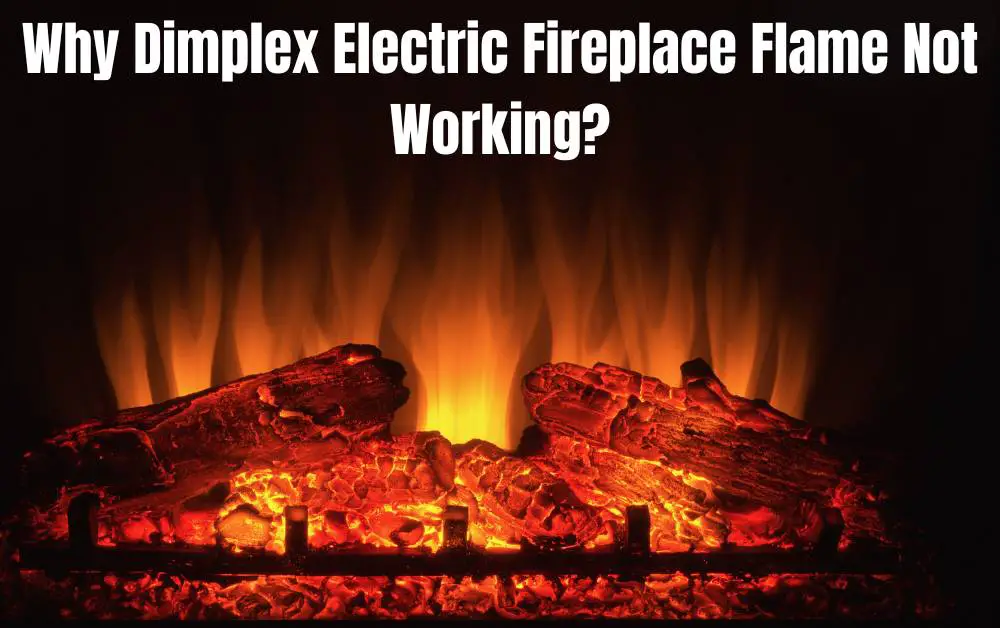Electric fireplaces are a great alternative to traditional fireplaces; however, if you’re a first-time buyer, you may have questions about installing and powering your electric fireplace safely and easily. Many people, particularly those experiencing the situation for the first time, want to know, can you plug an electric fireplace into a surge protector? Is it safe to use a power strip or extension to run a fireplace?
Don’t plug an electric fireplace into a surge protector. Plugging your fireplace into a surge protector, extension cord, or power strip can increase the risk of damage due to excessive heat buildup in an overloaded circuit.
Every household member needs to know if it is safe to plug your electric fireplace into a surge protector before doing so, and that is exactly what we will be looking at in this blog post.
We have covered many related queries you need to know about powering up an electric fireplace and what to use and not to use.
Key Takeaways:
- Plugging electric fireplace in surge protector, extension cord and power strip is not safe.
- The electric fireplace’s delicate system is not designed to keep its internal components functioning according to the surge protector current flow.
- Plug an electric fireplace directly into the standard 120-volt outlet.
- The purpose of surge protection device (SPD) is to protect electrical equipment against electrical surges and spikes.
- Ensure to follow the manufacturer’s guidelines when using your electric fireplace or electrical device.
Can you plug an Electric Fireplace into a Surge Protector?
No, an electric fireplace should not be plugged into a surge protector or extension cords. Every electric fireplace manufacturer mentioned in their manual never to plug your heating unit into power strips, extension cords, or surge protectors.
You can plug the heating unit power cord into a standard electrical outlet with a 120-volt current.

Why should you not plug an electric fireplace into a surge protector?
The purpose of a surge protector, also known as a surge protection device (SPD) and voltage surge suppressor (TVSS), is to protect electrical equipment against electrical surges and spikes.
However, the electric fireplace’s delicate system is not designed to keep its internal components functioning according to the surge protector current flow and can cause damage to the heating unit. Electric fireplaces draw much power and require a direct connection to an outlet or wall socket.
Using a surge protector with your electric fireplace may seem like a good idea at first glance, but it’s not recommended. Surge protectors are designed to regulate the flow of electricity to connected items, much like a fuse in an electrical circuit.
It’s best to avoid using a surge protector with your heating unit. It’s always important Always follow the manufacturer’s instructions when using your electric fireplace or electrical device.
Risks involved in plugging a fireplace directly into power strips, surge protectors, or extension cords.
Like any electrical devices Plugging a fireplace directly into power strips, surge protectors, or extension cords can pose several risks, including:

- Overloading the circuit: Fireplaces often draw a lot of power, which can overload the circuit and cause the wires to heat up, potentially leading to a fire.
- Overheating: If the fireplace is not properly grounded or the extension cord is too thin, the wires can overheat, which can also cause a fire.
- Electrical shock: Using an extension cord or power strip that is not rated for the high voltage and amperage required by the fireplace can increase the risk of electrical shock.
- Damage to the Device: Power strips or surge protectors can cause voltage spikes or surges, damaging the fireplace’s electronic components and other electrical appliances.
To minimize the risk of these hazards, it is recommended to plug the fireplace directly into a wall outlet that is properly grounded and rated for the voltage and amperage required by the fireplace.
You May Also Like To Read:
Electric Fireplace Outlet Requirements
The electric fireplace outlet requirements depend on the specific model of the fireplace and its electrical rating. However, here are some general guidelines to consider:
- Voltage: Electric fireplaces typically require a 120-volt outlet. Make sure the outlet is properly grounded.
- Amperage: The amperage required by the electric fireplace varies, but it is typically between 12 and 15 amps. Check the fireplace’s specifications and ensure the outlet can handle the required amperage.
- Circuit Breaker: It is a good idea to have the electric fireplace outlet on its dedicated circuit breaker. This is important to prevent overloading the circuit and reduce the risk of electrical hazards.
- Type of Outlet: The outlet for an electric fireplace should be a standard 3-prong grounded outlet or according to your heating unit power cord.
- Location: The outlet should be located in a safe and accessible location, away from flammable materials and at a safe distance from the fireplace.
- Read the Product Manual: Always consult the owner’s manual or manufacturer’s instructions for specific electrical requirements and guidelines for your particular electric fireplace model.

Important considerations before installing an Electric Fireplace
Here are some important considerations to keep in mind before installing an electric fireplace:
- Choose an appropriate location for the fireplace close to an electrical outlet and away from flammable materials.
- Check the electrical requirements of the electric fireplace to ensure that your home’s electrical system can handle the load. Make sure to install the fireplace on a dedicated circuit that can handle the required amperage.
- Consider the size and style of the electric fireplace that you want to install. Make sure that it fits the space and complements the decor.
- Follow the manufacturer’s instructions carefully for installation. If you are not comfortable with electrical work, consider hiring a licensed electrician to do the installation for you.
- Electric fireplaces require little maintenance, but keeping the unit clean and in good condition is still important to ensure its safe and efficient operation.
- Follow all safety guidelines and precautions when using the electric fireplace. This includes keeping flammable materials away from the fireplace, not leaving the unattended fireplace while in use, and not modifying the unit or its electrical components.

Are there safety hazards that come with electric fireplaces?
While electric fireplaces are generally considered safer than traditional wood-burning fireplaces and gas fireplaces, there are still some safety hazards that come with electric fireplaces.
Some potential safety hazards include:
- Electric fireplaces can pose electrical hazards if not used properly.
- While electric fireplaces do not produce flames or sparks, they can still get hot enough to ignite nearby combustible materials such as curtains, papers, or furniture.
- Touching an electric fireplace’s hot glass or metal parts can result in burns.
- If not placed on a level surface,
- electric fireplaces can tip over, potentially causing injury or property damage.
- If an electric fireplace overheats, it can damage the unit or start a fire.
To minimize these hazards, it’s important to follow the manufacturer’s instructions for installation, use, and maintenance. This includes ensuring proper clearance around the fireplace, using it only in the intended manner, and not modifying the unit or its electrical components.
It’s important to keep flammable materials away from the fireplace and never leave the unattended fireplace while in use.

FAQ:
Does electric fireplace need dedicated circuit?
No, most electric fireplaces don’t require a dedicated circuit. They are typically rated at 12 to 15 amps and can be connected to any existing 120-volt household circuit.
However, if you have an older electric power connection or your fireplace is particularly powerful and requires specific power voltage, it may require its dedicated circuit.
You should always consult a qualified electrician to ensure that the wiring and circuit are adequate.
Can you plug an Electric Fireplace into a Regular Outlet?
Yes, you can. An electric fireplace can be plugged directly into a regular 120-volt electrical outlet without risk. Ensure the voltage and amperage of your outlet match the requirements for your electric fireplace. Otherwise, you will need to upgrade the wiring or install a new dedicated circuit.
Can I plug my electric fireplace into an extension cord?
No, electric fireplaces should not be plugged into an extension cord. Extension cords are not designed to handle the amount of power required by electric fireplaces and can overheat and potentially cause an electric fire.
Final Verdict
Can you plug an Electric Fireplace into a Surge Protector? Personally, I prefer to plug an electric fireplace directly into a standard wall outlet to avoid any damage risk. That’s why I suggest you not use any surge protector, power stripe, or extension. You can use the power strips and surge protector for a space heater, low-power electric chimney, electric stove, etc.
Affiliate Disclosure: Fireplaceadviser.com is a participant in the Amazon Services LLC Associates Program. We may earn a commission when you click on certain links on this site and purchase.

Hello!! I am Jamal Khan. I often fix my home electric heaters and gas stove problems and research the common issues in the heating units to improve my knowledge and expertise. The aim of establishing fireplaceadviser.com is to share my expertise and knowledge with my audience.














